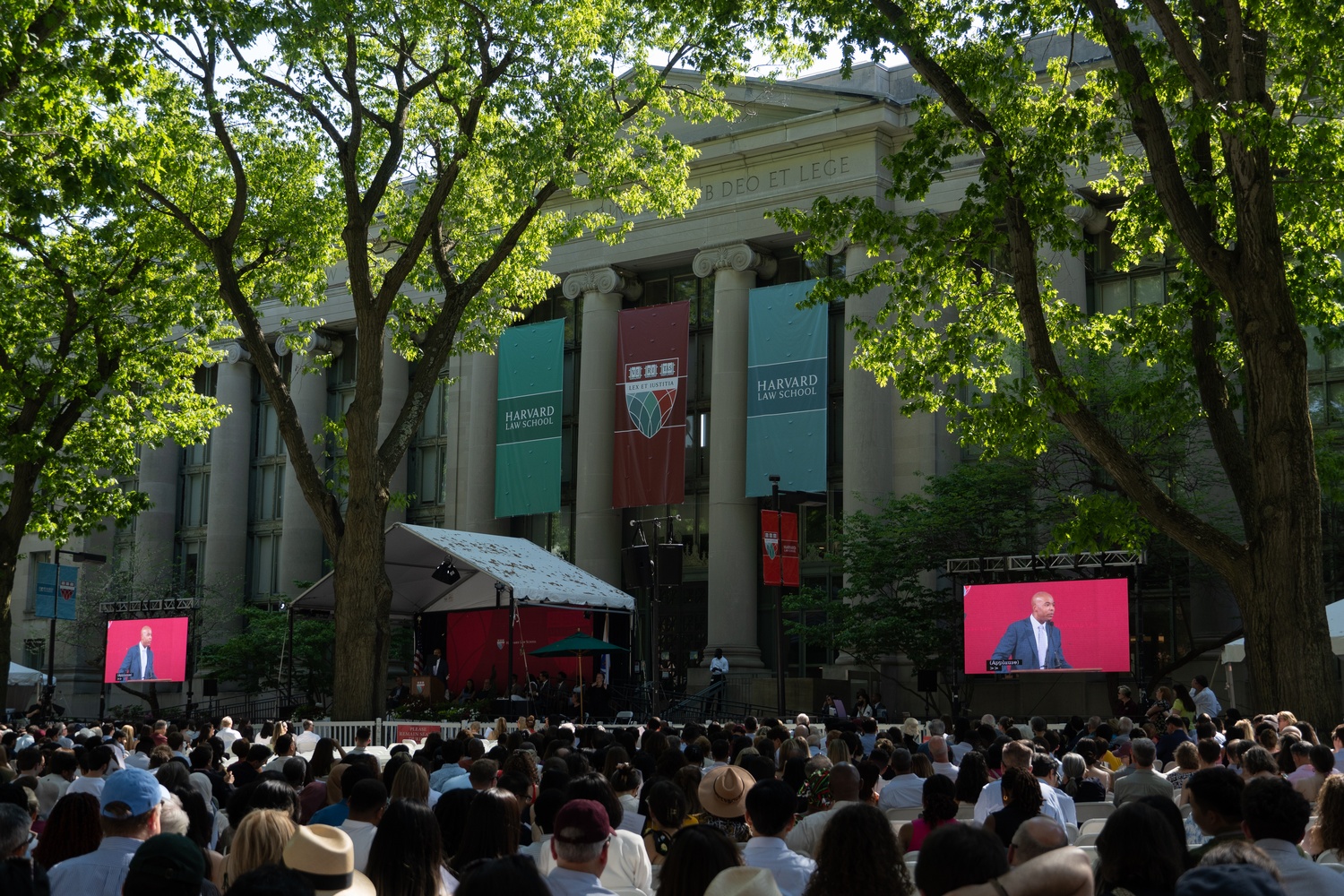
News
Harvard Grad Union Agrees To Bargain Without Ground Rules

News
Harvard Chabad Petitions to Change City Zoning Laws

News
Kestenbaum Files Opposition to Harvard’s Request for Documents

News
Harvard Agrees to a 1-Year $6 Million PILOT Agreement With the City of Cambridge

News
HUA Election Will Feature No Referenda or Survey Questions
I’m a White HLS Grad. Classroom Diversity Made Me a Better Lawyer.

I graduated from Harvard Law School in 2022. If I was enrolling now, I would learn far less.
Earlier this month, HLS released data showing that this year’s matriculating class — the first since the fall of race-based affirmative action — includes a mere 19 Black students, down from 43 the year before.
By enrolling such a homogenous class, Harvard Law is providing a comparatively paltry educational experience to its students.
There’s a common refrain passed down from lawyer to law student across generations: The practice of law is nothing like law school. Several years into practice, I can confirm that doctrinal law has little bearing on my day-to-day professional life.
However, the practice of law does have certain similarities to law school. In both, you are surrounded by people from varied backgrounds and trying to get everyone on board with your way of thinking. Honing this skill is challenging. And it’s impossible to do if your classmates have the same lived experience or identities, including race.
I’m white. Being white in a society that presents whiteness as the norm is a massive systemic advantage. But it’s also a massive blind spot. Speaking from experience, until white students reckon with the reality of living in a diverse society, they lack baseline analytical skills and empathy necessary for success as professionals and community members.
If it doesn’t occur to you to consider the impacts of race in a job rooted in your capacity to persuade others, you will be bad at your job. And if it does occur to you to consider the impacts of race, but your understanding is limited to theoretical discussions among people that only look like you, your considerations will be stunted and often wrong.
Being a successful lawyer — and indeed, being a functioning member of society — requires a capacity for perspective shifts. A classroom made up of people who share the same lived experiences can’t teach that ability.
I benefited immensely from joining a comparatively diverse student body at Harvard. Non-white sectionmates, Black ones especially, shaped my understanding of the law. I am grateful that, despite the burden it placed on them, classmates were open about their experiences navigating racism in our legal system, which was critical for my own learning.
Of course, it’s often isolating and difficult for students of color when their peers’ learning rests on their willingness to share upsetting experiences. While discussing loitering laws in Chicago during our criminal law course, a friend shared that she herself had been harassed by police outside Chicago movie theaters simply for existing as a Black teenager.
It took courage and generosity to share such a personal anecdote; other classmates were predictably resistant to hearing her lived experience. Had she been the only Black student in the section — now a real possibility given that there are only 19 Black students in this year’s 7-section 1L class — she might have never shared that story at all.
You cannot seriously engage with the realities of American law without discussing its disparate impact on people of different races, and you cannot meaningfully have that discussion in a room that is three percent Black.
Being comfortable learning from others who don’t share my background — as opposed to shutting down or ignoring differences – makes me a good attorney. It’s a capacity I was only able to build in diverse spaces.
To be clear: I don’t think damage to white students’ learning is the most urgent harm caused by elite institutions when they fail to admit racially diverse classes. Indeed, the very practice of non-white students having to share trauma and learn in spaces where other students are not aware of the basics of systemic racism harms non-white students’ capacity to learn. But it seems that harm to white students, whether real or perceived, is the harm institutions take seriously, and it’s the harm I understand personally.
The narrative that only students of color benefit from or care about racial diversity in their classrooms is false. We are all worse off in overwhelmingly white educational spaces. Not only are 1Ls of every race harmed by their class’ lack of diversity, so are all of their future clients.
Harvard is one of the greatest educational institutions in the world. I am confident it can figure out how to build diverse classes despite the Supreme Court’s prohibition of race-based affirmative action. And I sincerely hope it does so before another class of students suffers the consequences.
Rachel A. Cohen is a graduate of Harvard Law School.
Want to keep up with breaking news? Subscribe to our email newsletter.
From Our Advertisers

Over 300+ courses at prestigious colleges and universities in the US and UK are at your disposal.

With innovative financial tools combined with financial education, Collegiate empowers students to take control of their finances and build confidence in their money management skills.

Serve as a proctor for Harvard Summer School (HSS) students, either in the Secondary School Program (SSP), General Program (GP), or Pre-College Program.

With an increasingly competitive Law School admissions process, it's important to understand what makes an applicant stand out.

Welcome to your one-stop gifting destination for men and women—it's like your neighborhood holiday shop, but way cooler.

HUSL seeks to create and empower a community of students who are seeking pathways into the Sports Business Industry.
